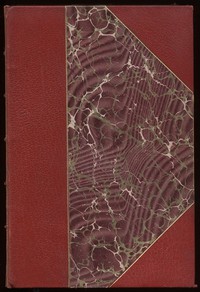Guy Mannering; or, The Astrologer — Complete by Walter Scott (good books to read in english .TXT) 📗

- Author: Walter Scott
Book online «Guy Mannering; or, The Astrologer — Complete by Walter Scott (good books to read in english .TXT) 📗». Author Walter Scott
‘That it was fruitless to you, my dear,’ said the Colonel, ‘I do most deeply lament; but for my own share, I have made some valuable acquaintances, and have spent the time I have been absent in Edinburgh with peculiar satisfaction; so that on that score there is nothing to be regretted. Even our friend the Dominie is returned thrice the man he was, from having sharpened his wits in controversy with the geniuses of the northern metropolis.’
‘Of a surety,’ said the Dominie, with great complacency, ‘I did wrestle, and was not overcome, though my adversary was cunning in his art.’
‘I presume,’ said Miss Mannering, ‘the contest was somewhat fatiguing, Mr. Sampson?’
‘Very much, young lady; howbeit I girded up my loins and strove against him.’
‘I can bear witness,’ said the Colonel; ‘I never saw an affair better contested. The enemy was like the Mahratta cavalry: he assailed on all sides, and presented no fair mark for artillery; but Mr. Sampson stood to his guns notwithstanding, and fired away, now upon the enemy and now upon the dust which he had raised. But we must not fight our battles over again to-night; to-morrow we shall have the whole at breakfast.’
The next morning at breakfast, however, the Dominie did not make his appearance. He had walked out, a servant said, early in the morning. It was so common for him to forget his meals that his absence never deranged the family. The housekeeper, a decent old-fashioned Presbyterian matron, having, as such, the highest respect for Sampson’s theological acquisitions, had it in charge on these occasions to take care that he was no sufferer by his absence of mind, and therefore usually waylaid him on his return, to remind him of his sublunary wants, and to minister to their relief. It seldom, however, happened that he was absent from two meals together, as was the case in the present instance. We must explain the cause of this unusual occurrence.
The conversation which Mr. Pleydell had held with Mr. Mannering on the subject of the loss of Harry Bertram had awakened all the painful sensations which that event had inflicted upon Sampson. The affectionate heart of the poor Dominie had always reproached him that his negligence in leaving the child in the care of Frank Kennedy had been the proximate cause of the murder of the one, the loss of the other, the death of Mrs. Bertram, and the ruin of the family of his patron. It was a subject which he never conversed upon, if indeed his mode of speech could be called conversation at any time; but it was often present to his imagination. The sort of hope so strongly affirmed and asserted in Mrs. Bertram’s last settlement had excited a corresponding feeling in the Dominie’s bosom, which was exasperated into a sort of sickening anxiety by the discredit with which Pleydell had treated it. ‘Assuredly,’ thought Sampson to himself, ‘he is a man of erudition, and well skilled in the weighty matters of the law; but he is also a man of humorous levity and inconsistency of speech, and wherefore should he pronounce ex cathedra, as it were, on the hope expressed by worthy Madam Margaret Bertram of Singleside?’
All this, I say, the Dominie THOUGHT to himself; for had he uttered half the sentence, his jaws would have ached for a month under the unusual fatigue of such a continued exertion. The result of these cogitations was a resolution to go and visit the scene of the tragedy at Warroch Point, where he had not been for many years; not, indeed, since the fatal accident had happened. The walk was a long one, for the Point of Warroch lay on the farther side of the Ellangowan property, which was interposed between it and Woodbourne. Besides, the Dominie went astray more than once, and met with brooks swoln into torrents by the melting of the snow, where he, honest man, had only the summer recollection of little trickling rills.
At length, however, he reached the woods which he had made the object of his excursion, and traversed them with care, muddling his disturbed brains with vague efforts to recall every circumstance of the catastrophe. It will readily be supposed that the influence of local situation and association was inadequate to produce conclusions different from those which he had formed under the immediate pressure of the occurrences themselves. ‘With many a weary sigh, therefore, and many a groan,’ the poor Dominie returned from his hopeless pilgrimage, and weariedly plodded his way towards Woodbourne, debating at times in his altered mind a question which was forced upon him by the cravings of an appetite rather of the keenest, namely, whether he had breakfasted that morning or no? It was in this twilight humour, now thinking of the loss of the child, then involuntarily compelled to meditate upon the somewhat incongruous subject of hung beef, rolls, and butter, that his route, which was different from that which he had taken in the morning, conducted him past the small ruined tower, or rather vestige of a tower, called by the country people the Kaim of Derncleugh.
The reader may recollect the description of this ruin in the twenty-seventh chapter, as the vault in which young Bertram, under the auspices of Meg Merrilies, witnessed the death of Hatteraick’s lieutenant. The tradition of the country added ghostly terrors to the natural awe inspired by the situation of this place, which terrors the gipsies who so long inhabited the vicinity had probably invented, or at least propagated, for their own advantage. It was said that, during the times of the Galwegian independence, one Hanlon Mac-Dingawaie, brother to the reigning chief, Knarth Mac-Dingawaie, murdered his brother and sovereign, in order to usurp the principality from his infant nephew, and that, being pursued for vengeance by the faithful allies and retainers of the house, who espoused the cause of the lawful heir, he was compelled to retreat, with a few followers whom he had involved in his crime, to this impregnable tower called the Kaim of Derucleugh, where he defended himself until nearly reduced by famine, when, setting fire to the place, he and the small remaining garrison desperately perished by their own swords, rather than fall into the hands of their exasperated enemies. This tragedy, which, considering the wild times wherein it was placed, might have some foundation in truth, was larded with many legends of superstition and diablerie, so that most of the peasants of the neighbourhood, if benighted, would rather have chosen to make a considerable circuit than pass these haunted walls. The lights, often seen around the tower, when used as the rendezvous of the lawless characters by whom it was occasionally frequented, were accounted for, under authority of these tales of witchery, in a manner at once convenient for the private parties concerned and satisfactory to the public.
Now it must be confessed that our friend Sampson, although a profound scholar and mathematician, had not travelled so far in philosophy as to doubt the reality of witchcraft or apparitions. Born, indeed, at a time when a doubt in the existence of witches was interpreted as equivalent to a justification of their infernal practices, a belief of such legends had been impressed upon the Dominie as an article indivisible from his religious faith, and perhaps it would have been equally difficult to have induced him to doubt the one as the other. With these feelings, and in a thick misty day, which was already drawing to its close, Dominie Sampson did not pass the Kaim of Derncleugh without some





Comments (0)